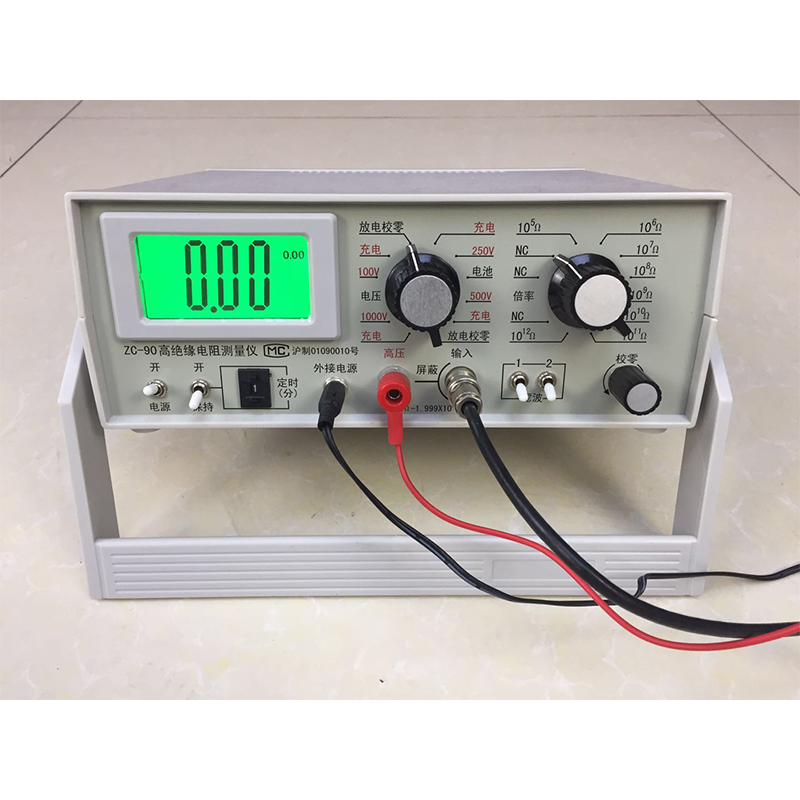Advanced Techniques and Equipment for Precision Electronic and Optical Measurement in Manufacturing Settings
The Emergence and Significance of Electronic and Optical Measurement Instruments in Modern Manufacturing
In today's fast-paced technological landscape, electronic and optical measurement instruments play a pivotal role in ensuring the precision and quality of manufacturing processes. These advanced instruments are designed to measure various physical properties of materials, components, and products with exceptional accuracy. Their applications span a multitude of industries, from aerospace to automotive, healthcare to telecommunications, driving the need for continuous innovation and advancement in measurement technologies.
At the heart of electronic measurement instruments are systems that utilize electrical signals to quantify physical parameters such as voltage, current, resistance, and temperature. These instruments, such as oscilloscopes, multimeters, and signal generators, are essential for diagnosing and troubleshooting equipment in manufacturing environments. By providing real-time data, electronic measurement tools help engineers and technicians make informed decisions, enhancing operational efficiency and product reliability.
Optical measurement instruments, on the other hand, harness the properties of light to analyze and determine various material characteristics. Techniques such as laser interferometry, spectroscopy, and optical microscopy allow manufacturers to measure distances, surface roughness, and material composition with unparalleled precision. The ability to inspect materials at a microscopic level has revolutionized quality control processes, enabling manufacturers to detect imperfections and ensure that products meet stringent specifications.
The integration of electronic and optical measurement instruments is particularly evident in automated manufacturing environments, where the demand for precision increases exponentially. Automation systems that employ these instruments can enhance throughput while reducing human error. For example, optical sensors can be integrated into assembly lines to perform continuous monitoring of component alignment, ensuring that every product is assembled correctly before it moves on to the next stage of production.
electronic and optical measurement instruments factory

Moreover, the importance of these measurement instruments extends to the realm of research and development. As industries strive for innovation, accurate measurement is critical in the development of new materials and products. Electronic and optical instruments help scientists and engineers test hypotheses, monitor experiments, and validate findings, ultimately driving technological advancements and creating competitive advantages.
In recent years, the rise of Industry 4.0 has further underscored the need for sophisticated measurement tools. The implementation of smart manufacturing practices, characterized by connectivity and data exchange among machines, highlights the value of real-time measurement and analysis. Electronic and optical measurement instruments can integrate with Internet of Things (IoT) systems, enabling manufacturers to collect vast amounts of data that can be analyzed for predictive maintenance, process optimization, and quality assurance.
As manufacturers become more reliant on these advanced technologies, the challenge lies in ensuring that personnel are adequately trained to operate and interpret the results from electronic and optical measurement instruments. Education and training programs are crucial in equipping the workforce with the necessary skills to navigate these complex systems. Furthermore, manufacturers must remain vigilant about maintaining and upgrading their measurement equipment to keep pace with technological advancements and regulatory changes.
In conclusion, electronic and optical measurement instruments are integral to modern manufacturing processes, offering precise measurements that enhance product quality and operational efficiency. Their role is critical not just in production but also in research and development, especially as industries move towards smarter manufacturing practices. As technology continues to evolve, these instruments will undoubtedly play an even more significant role in shaping the future of manufacturing, ensuring that precision and quality remain at the forefront of industrial innovation.
-
The Role of Tensile Force Testers in Quality Control and Material Science
NewsAug.01,2025
-
Maintenance and Safety Tips for Aging Ovens
NewsAug.01,2025
-
Density Balance in Forensic Science
NewsAug.01,2025
-
Advanced Optical Measurement Technologies
NewsAug.01,2025
-
A Buyer’s Guide to Tensile Test Machines
NewsAug.01,2025
-
Why the Conductor Resistance Constant Temperature Measurement Machine Redefines Precision
NewsJun.20,2025
 Copyright © 2025 Hebei Fangyuan Instrument & Equipment Co.,Ltd. All Rights Reserved. Sitemap | Privacy Policy
Copyright © 2025 Hebei Fangyuan Instrument & Equipment Co.,Ltd. All Rights Reserved. Sitemap | Privacy Policy
